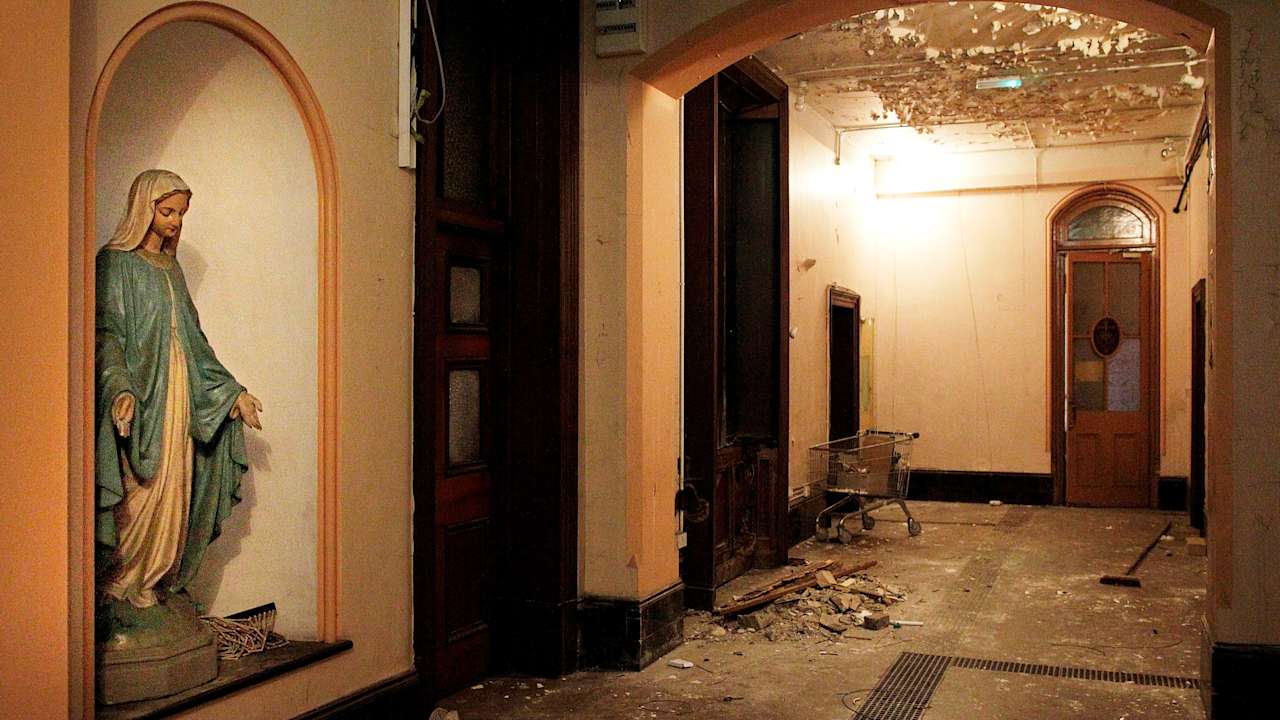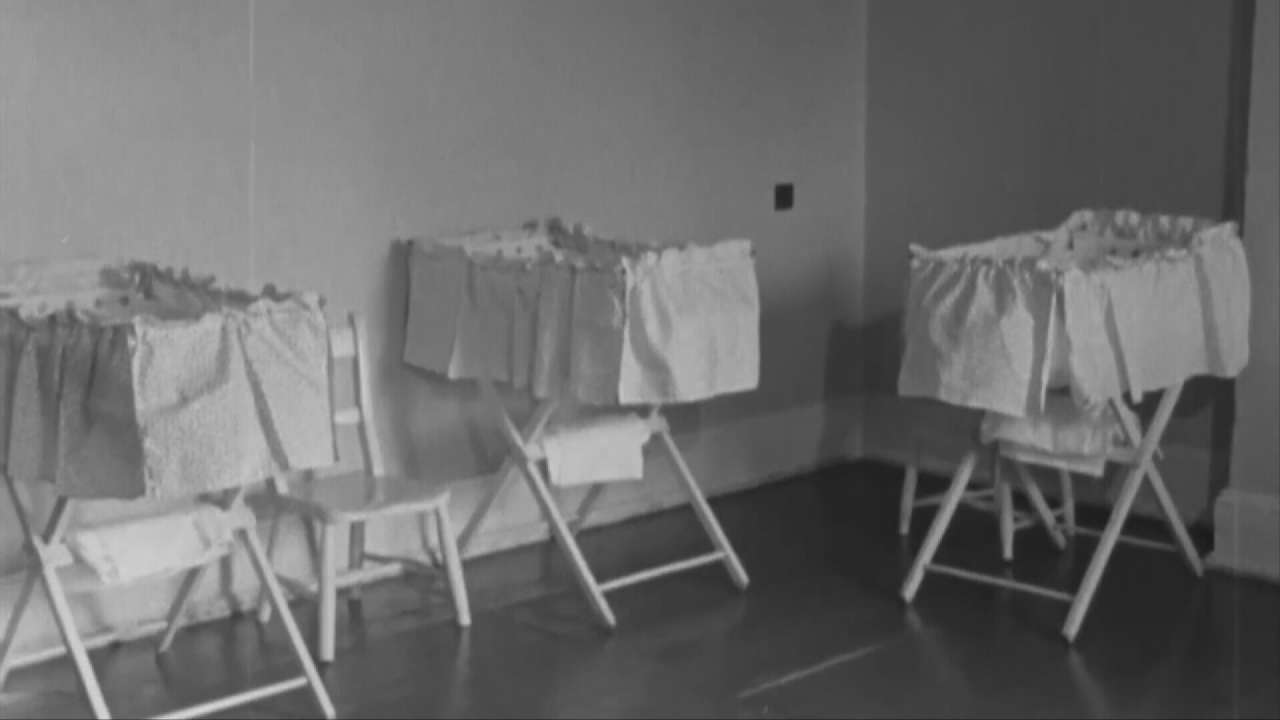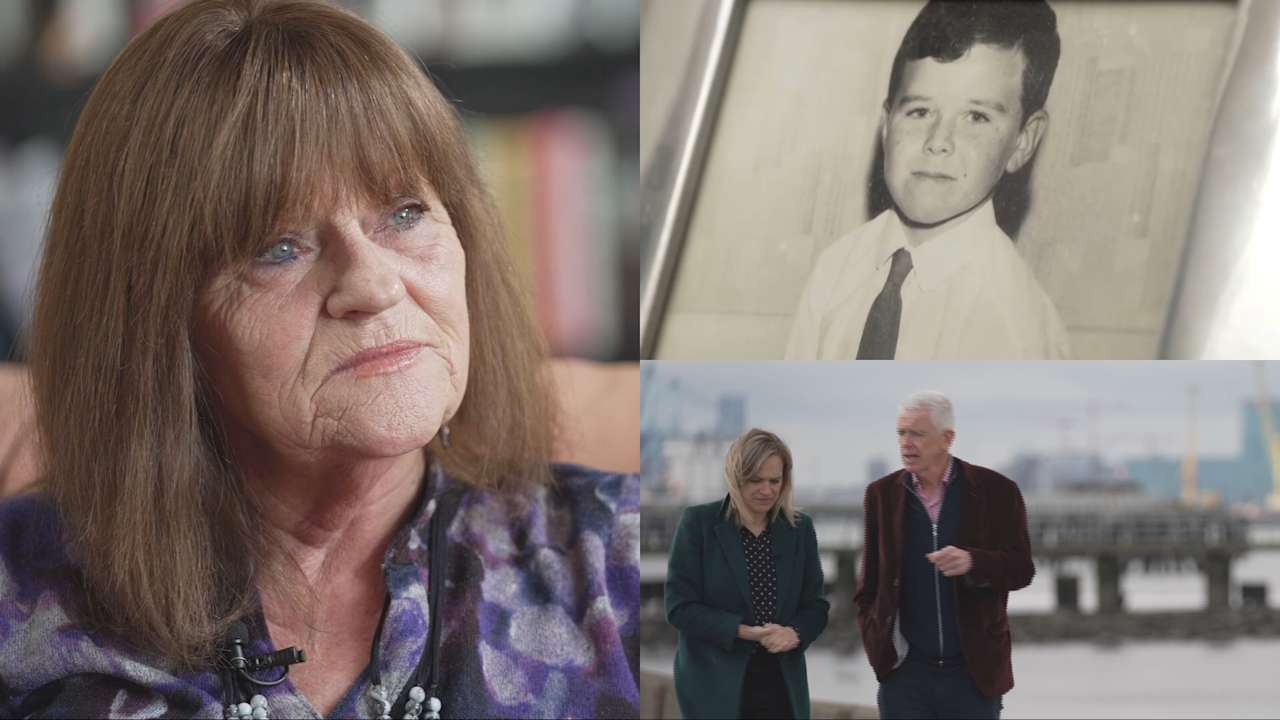British authorities saw unmarried Irish mothers as a burden on the public purse, while the Catholic Church wanted to keep babies in their faith, ITV News Social Affairs Correspondent Sarah Corker reports
Three generations of the Cahill family have been deeply affected by what happened decades ago.
Fiona Cahill’s mother Maria was born in a Red Cross mother and baby home in London in 1954, but as a newborn baby was sent to one of Ireland’s most notorious institutions with her mother Philomena, who was unmarried.
Philomena had moved from Ireland to London for work as a teenager and later met Maria’s father. Like thousands of others, she was labelled as a ‘PFI’.
In the 1950s and 60s, a pregnant, unmarried women from Ireland was reduced to an acronym by social workers in England – PFI which stood for ‘pregnant from Ireland.’
At that time, thousands of young women had fled Ireland to avoid the brutal institutions there, but they found Britain to be an unwelcoming place and different forces conspired to pressure women to give up their babies.
The British authorities saw them as a burden on the public purse, while the Catholic Church in Ireland wanted to keep babies in their faith.
The result was an organised repatriation scheme where journeys were organised and paid for by the state and the church.
Fiona, 50, who is an artist and carer, contacted ITV News after seeing our ongoing investigation in historic forced adoption.
“The archbishops talked about saving catholic souls, the saving the soul was more important than saving the life,” she said. “They viewed it as once they were in the institution, they were less than human.”
Since her mother’s death, Fiona Cahill feels it’s her duty to carry on the campaign for justice and recognition
She has spent decades examining archives and files trying to piece together the mysteries of her mother’s childhood.
“There was an anti Irish migrant rhetoric and the cost to the British taxpayer is something that comes up a lot in the archives,” she said.
“They were justifying it about the cost. It was a real culture of shame, secrecy and oppression.”
After spending two years at Castlepollard mother and baby Home in County Westmeath, Ireland, which at time had a 40% infant mortality rate, Maria was adopted by a woman who she described as “emotionally abusive”.
Fiona recalls how her mother would have post traumatic stress disorder (PTSD) symptoms stemming from her difficult early years, and how that trauma has been passed down the generations.
“She’d struggle controlling her emotions,” she said. “It could be chaotic and difficult growing up. We just had to try to support her, but I just remember feeling helpless.”
Maria who lived in Doncaster and passed away in 2023 aged 69, only found out she was adopted when she was 21 as she applied for a passport.

It wasn’t until she was 40 that she discovered she was a British citizen after finding out that she had two birth certificates, a UK one and a “falsified” Irish one.
In the decades that followed she tried unsuccessfully to trace her birth parents.
“All she ever wanted was a hug from her own mum,” Fiona said.
Since her mother’s death, Fiona feels it’s her duty to carry on the campaign for justice and recognition. “It’s like a dark corner that never goes away,” she added.
“One thing that can’t happen is for it to be swept under the carpet and forgotten, I couldn’t bare that thought.”
Survivors are now campaigning for compensation from both Irish and British governments – who they say were directly involved in the ‘brutal’ repatriation scheme from 1930 to the late 1970s.
In March, Labour MP Liam Conlon, who is the national chair of the Labour Party Irish Society, introduced Philomena’s Law to support the 13,000 survivors of Ireland’s mother and baby homes in Britain.
Speaking to ITV News, Mr Conlon said he had been “unaware” of the PFI forced repatriation scheme and described it as “horrific”.
“It’s really shocking and a really underreported and unrecognised aspect of this wider scandal,” he said.
“To hear that women who would have been very vulnerable, who would have come here (to Britain) to then be deported, often very pregnant, and put in those institutions is horrific.”
‘People want truth on the record’, Labour MP Liam Conlon, who is the national chair of the Labour Party Irish Society, told ITV News
Fiona and her family are now calling for all archives from religious and state run mother and baby institutions in the UK to be preserved and accessible.
She wants a special site to house documents, objects and oral history, so that this dreadful period of history cannot be forgotten.
“There are many people who still assume they were ‘given up’ and remain totally unaware of the manner in which unmarried women and children were treated,” Fiona added.
In 2021 the Irish Taoiseach delivered a formal apology for historic forced adoption and the suffering caused.
That apology was “accompanied by a Government Action Plan for Survivors providing for actions under eight themes including redress, access to records and memorialisation,” a spokesperson for the Irish government said.

In response to our investigation, the UK government said: “This abhorrent practice should never have taken place, and our deepest sympathies are with all those affected.
“We take this issue extremely seriously and continue to engage with those impacted to provide support.”
In 2016 the head of the Catholic Church in England and Wales apologised “for the hurt caused by agencies acting in the name of the Catholic Church”.
Cardinal Vincent Nichols acknowledged “the grief and pain caused by the giving up of a child through adoption”, and added that “the practices of all adoption agencies reflected the social values at the time”.
If you have been affected by the issues in this report, please visit the links for help and support:
- Adult Adoptee Movement – provides links to resources offering information and support for adoptees in the UK
- Movement for Adoption Apology – provides information on forced and coerced adoption in the UK and around the globe
- Safe Spaces – an independent service offering confidential support to survivors of Church-related abuse on 0300 303 1056 or on their website
- PAC UK – Specialist therapy, advice, support, counselling and training for all affected by adoption and permanency
Follow STV News on WhatsApp
Scan the QR code on your mobile device for all the latest news from around the country





























